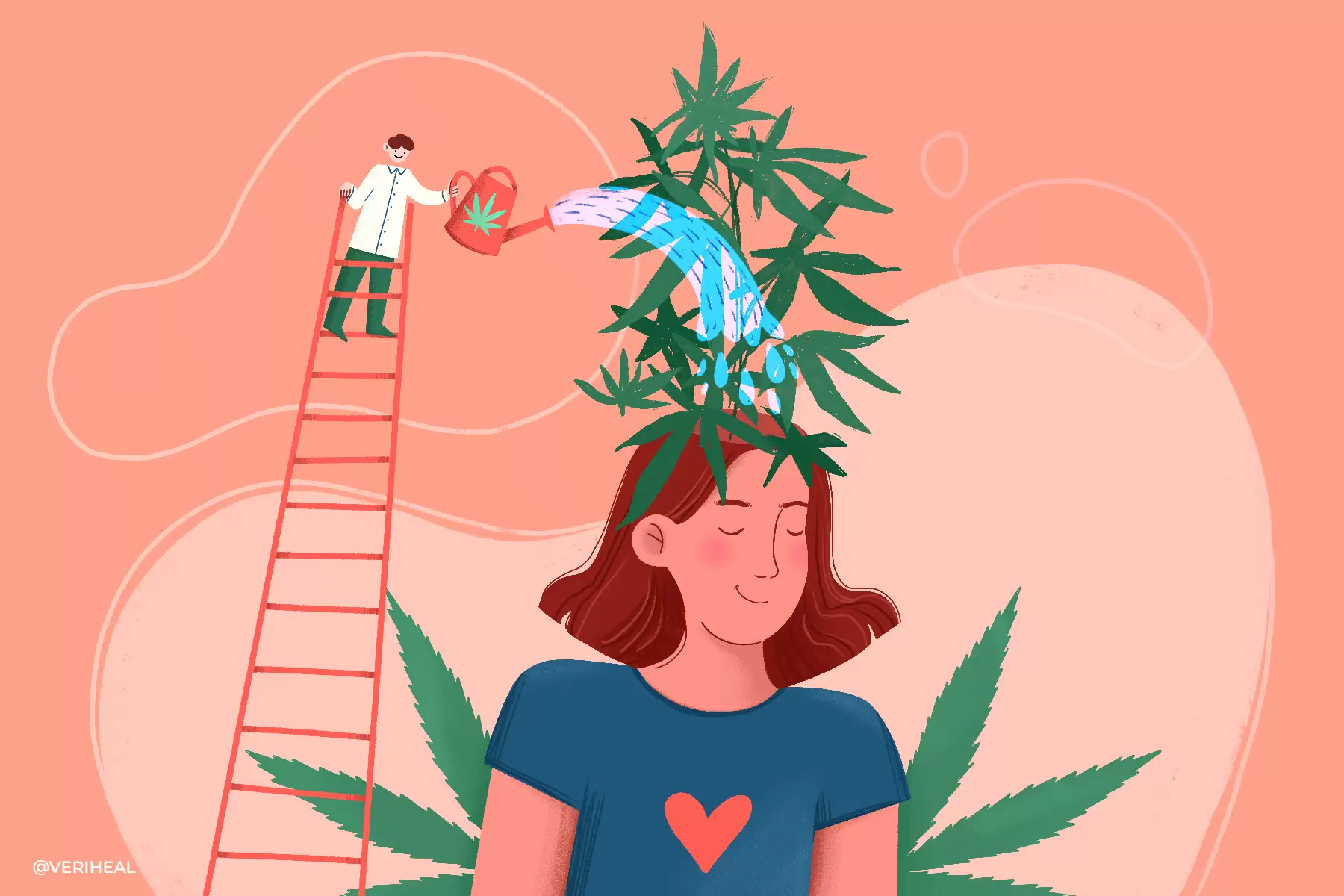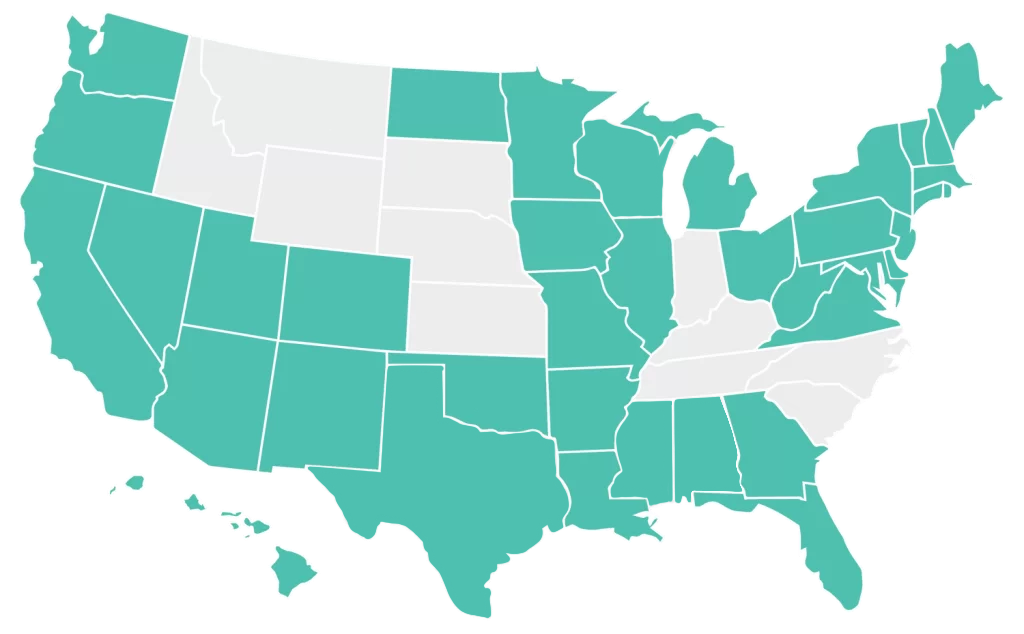
This article was originally published on Veriheal.com
From Mental Health Awareness Month in May to World Suicide Prevention Day in September, destigmatizing mental illness is a year-round effort. These awareness events are a time to reflect, share resources, and support those who deal with mental health concerns. And there are many among us.
According to the 2021 State of Mental Health in America report by nonprofit organization Mental Health America (MHA), 19% of adults experienced a mental illness between 2017 and 2018, an increase of 1.5 million people over the previous dataset released in 2020. And that illness is having life-threatening effects on the population. According to MHA, the percentage of adults in the U.S. who are experiencing serious thoughts of suicide increased by 0.15% from 2016-2017 to 2017-2018—an additional 460,000 people from the previous dataset.
One of the major obstacles many with a mental illness face is access to and affordability of treatment and resources. According to MHA:
According to MHA, these figures on the need for mental health care have not declined since 2011.
Medical cannabis can be recommended for some mental illnesses, including anxiety and post-traumatic stress disorder (PTSD). Because of how the federal government still regulates cannabis, research into its efficacy is often anecdotal. In an open forum in Arizona, those with PTSD diagnoses and their loved ones reported that cannabis has hugely helped them in their struggles. One person commented:
“PTSD has kept me as a hermit separated from my entire family. Literally living in a hole in the ground in the desert!! I have hated every aspect of my life as a result of PTSD and if I hadn’t smoked medical cannabis, I wouldn’t be here to be writing this now.”
Let’s explore which states allow medical cannabis for mental health conditions. Keep in mind that some of these states—specified in the chart below—only allow CBD and/or low-THC products.
State |
Qualifying Mental Health Conditions |
|---|---|
Alabama |
Depression, panic disorder, PTSD |
Arizona |
PTSD Previously, Arizona allowed anxiety patients to purchase medical cannabis. This was changed as of 2021. |
Arkansas |
PTSD Arkansas residents are able to petition the Department of Health asking for their specific condition to be added to the list of qualifying conditions, meaning more mental health conditions could be added. |
California |
Anorexia, any debilitating illness where the medical use of marijuana has been “deemed appropriate and has been recommended by a physician” |
Colorado |
PTSD |
Connecticut |
PTSD Other medical conditions may be approved by the Department of Consumer Protection. |
Delaware |
Anxiety (varieties of cannabis that may be obtained by these patients are limited to those dominant in CBD and low in THC), PTSD, any other debilitating condition if the use is authorized by a physician and if “current standard care practices and treatments have been exhausted, and there are grounds to support that the patient may benefit from this treatment.” |
Florida |
PTSD |
Georgia |
PTSD Patients are limited to products containing not more than 5% THC and an amount of CBD equal to or greater than the amount of THC. |
Hawaii |
PTSD |
Illinois |
Anorexia |
Iowa |
PTSD Patients are limited to CBD products that contain less than a combined total of 4.5 grams of total THC in 90 days. This threshold does not apply to patients whose physicians have determined greater quantities of THC are necessary in order to sufficiently treat the patient’s debilitating medical condition. |
Louisiana |
PTSD, any other condition not otherwise specified “that a physician, in his medical opinion, considers debilitating to an individual patient and is qualified through his medical education and training to treat” |
Maine |
Unlike other states, Maine does not have a list of qualifying conditions. As of 2018, certified providers are able to approve patients for a medical cannabis card based on any condition they deem treatable by the plant’s properties. |
Maryland |
Anorexia, PTSD, any chronic medical condition that is severe and for which other treatments have been ineffective |
Massachusetts |
No mental health conditions currently fit the state’s list of approved diagnoses, but Massachusetts allows “other conditions that severely limit one or more major life functions” that a doctor can confirm. Speak to your healthcare provider to see if you qualify. |
Michigan |
Obsessive-compulsive disorder (OCD), PTSD |
Minnesota |
PTSD |
Mississippi |
PTSD Patients are limited to cannabis extracts that contain no more than 0.5% THC. |
Missouri |
Debilitating psychiatric disorders, including but not limited to PTSD |
Montana |
PTSD |
Nevada |
Anorexia, anxiety disorders, PTSD The state of Nevada will also approve patients who are certified by a physician to have any other debilitating condition that greatly affects their quality of life. |
New Hampshire |
PTSD |
New Jersey |
Anxiety, PTSD |
New Mexico |
Anorexia, PTSD |
New York |
PTSD, any other condition that the practitioner believes can be treated with medical cannabis |
North Dakota |
Anorexia, anxiety, bulimia, PTSD |
Ohio |
PTSD |
Oklahoma |
There is no list of qualifying conditions, nor any specified criteria for patients to receive a physician’s recommendation. According to SQ 788, “The physician must recommend a medical marijuana license according to the accepted standards a reasonable and prudent physician would follow for recommending or approving any medication.” Check with your physician to see if you qualify. |
Oregon |
PTSD Other conditions are subject to approval. |
Pennsylvania |
Anxiety disorders, PTSD, other conditions that are recommended by the advisory board and approved by the secretary |
Rhode Island |
PTSD Other conditions are subject to approval. |
South Dakota |
PTSD Other medical conditions may be added by the Department of Health. |
Texas |
PTSD Patients are limited to low-THC (no more than 1% by weight)/high-CBD (not less than 10 percent) products. |
Utah |
PTSD |
Vermont |
PTSD |
Virginia |
Any diagnosed condition or disease determined by the practitioner to benefit from medical cannabis |
Washington |
PTSD, any “terminal or debilitating condition” |
West Virginia |
PTSD |
Wisconsin |
Any medical condition approved by a physician Patients are limited to CBD products without a psychoactive effect. |
Washington, D.C. |
Any debilitating condition as recommended by a D.C.-licensed doctor |

Whether you or a loved one has been struggling with mental health for a short while or what feels like forever, there is support. The National Alliance on Mental Illness can help you find resources. You don’t have to fight this battle alone.
This blog post was originally published on 4/21/21. Updated 9/8/22.
No Information on MarijuanaDoctors.Com should be used to diagnose, treat, prevent or cure any disease or condition. You can view our Full Disclaimer here.